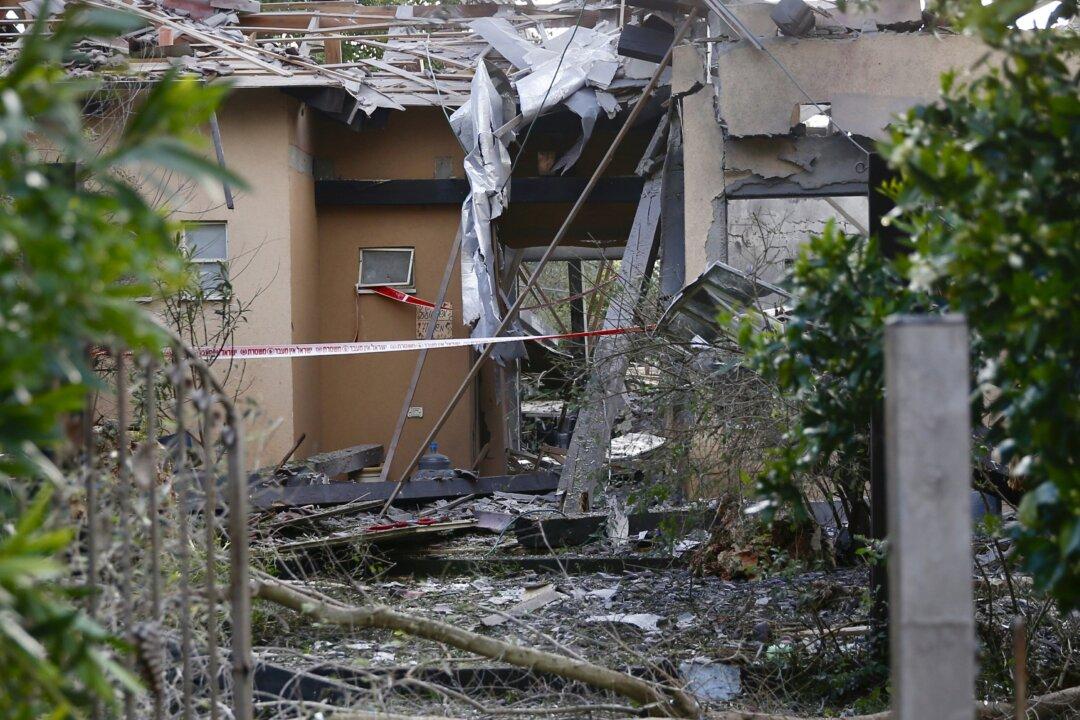Israeli Prime Minister Benjamin Netanyahu said he’s cutting short his visit to Washington after a Gaza rocket attack on Israel.
Netanyahu described Monday morning’s rocket launch that struck a home in central Israel as a “criminal attack.”

Israeli Prime Minister Benjamin Netanyahu said he’s cutting short his visit to Washington after a Gaza rocket attack on Israel.
Netanyahu described Monday morning’s rocket launch that struck a home in central Israel as a “criminal attack.”